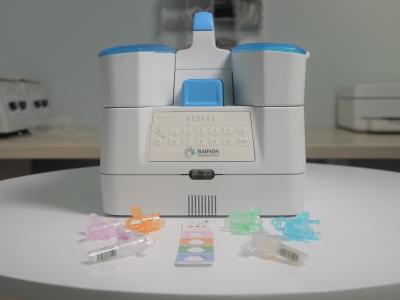BD is expanding its long-running partnership with the blood collection company Babson Diagnostics, which aims to make taking a high-quality sample in pharmacies, grocery stores or at home as easy as possible.
The two companies have been working together since 2019 on a device that can gather small volumes of blood from the capillaries in the fingertip without requiring any specialized training, and beginning with a focus on supporting primary care in retail settings.
Now, they’re aiming to develop the system for self-collection and at-home diagnostic tests, as well as for mobile blood testing services. The companies are looking to increase the scope of blood tests that can ultimately be performed using their miniature samples without needing to tap a vein.

"Extending the medical home is critical in today's healthcare environment,” Babson CEO David Stein said in a statement. “We believe that retail convenience is perfect for today's consumer, but because the Babson service is well-suited to many settings with no need for a phlebotomist and an easier collection experience, we see many opportunities for future expansion."
Previous attempts at fingerstick blood use for common tests have been plagued by quality issues—most famously pursued by the failed company Theranos—as squeezing out drops of blood can contaminate or alter the sample. Babson’s device aims to coax out the blood without using the same pressure.
And while typical venipuncture requires a trained professional and takes about 4 milliliters to 10 milliliters of blood out of the arm, the former Fierce 15 winner says it can make do with a pea-sized amount about a tenth of the size.
The Austin, Texas-based Babson—a startup first incubated at Siemens Healthineers and launched in 2017—hopes to deliver a full blood testing ecosystem including the collection hardware, a digital “caddy” for sample preservation and handling and the analysis itself performed through its own CLIA-certified laboratory.
“Because it is less invasive and more convenient than the traditional venous blood draw method, capillary blood collection may lead to an improved patient experience, which in turn could help healthcare providers see better compliance among patients for routine blood testing,” said Brooke Story, BD’s president of integrated diagnostics solutions.
The company raised $31 million in venture capital funding in June 2021, not long after kicking off the clinical testing of its devices. Babson said it is working with local and national pharmacy chains to conduct additional studies of its service platform, in addition to developing tests for pediatric use, as it prepares for a future commercial launch.